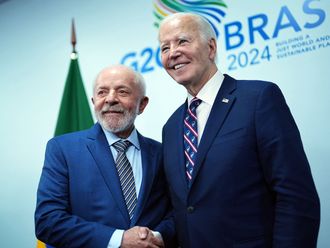_resources1_16a0854072f_medium.jpg)
Islamabad: As Pakistanis prepare to face severe winter, a serious gas crisis is looming over the country.
A senior government official has reportedly warned the National Assembly committee on petroleum that “there would be no gas supply to household consumers for 16 hours a day.”
However, the additional secretary of Petroleum division Mohammad Mahmood assured that “every effort would be made to ensure gas supply to domestic consumers for three hours in the morning, two hours in the afternoon and three hours in the evening” for breakfast, lunch and dinner.
The managing director of Sui Southern Gas Company Ltd told the parliamentary committee members that the gas load management plan for winter had been submitted to the Petroleum Division. He said that “priority would be given to domestic consumers”.
The natural gas deficit is likely to worsen this winter due to a lack of development in domestic gas production and failure to secure a long-term supply of liquefied natural gas.
The country was unable to attract any bidder for a long-term contract because of international market conditions as European buyers are willing to pay high prices to secure gas supplies following EU-Russia tensions. Pakistan’s Secretary of Petroleum conceded that Pakistani authorities could not purchase expensive LNG and sell it cheaper while diversion of liquefied natural gas (LNG) was not available even at higher rates.
Political instability and gas scarcity
Tough days are ahead for Pakistanis due to severe gas shortages after climate forecasters warned of a harsh winter this year. Officials have noted that local gas production was declining at the rate of 10 per cent every year and predicted that “there would be no indigenous gas supply after 10 years if the situation continued.”
“There are no new discoveries of gas due to security risks and political instability,” the secretary noted. In a frank acknowledgement, the secretary said that instead of investing in Pakistan, the leading international petroleum companies were going to other low-risk countries in search of oil and gas.
The two key reasons for the energy shortage cited by officials were security threats and political instability in the country. “International oil and gas companies are not ready to invest in Pakistan due to political instability,” the official said, according to Pakistan media reports. Experts say that sudden changes in the administration and policies have discouraged foreign investors from oil and gas exploration and investment in Pakistan. The officials also complained that the country could not import cheaper gas from Iran and Russia since both are under severe US and Western sanctions.
Natural gas use in Pakistan
Pakistan is one of the most gas-intensive countries in the world where natural gas was made available to households at dirt-cheap prices for years. The country is now witnessing gas shortages and load shedding, forcing Pakistan to explore indigenous resources. Natural gas contributes about 35 percent to the primary energy supply mix of the country.
Pakistan started importing liquefied natural gas in 2015 to meet its energy needs.












